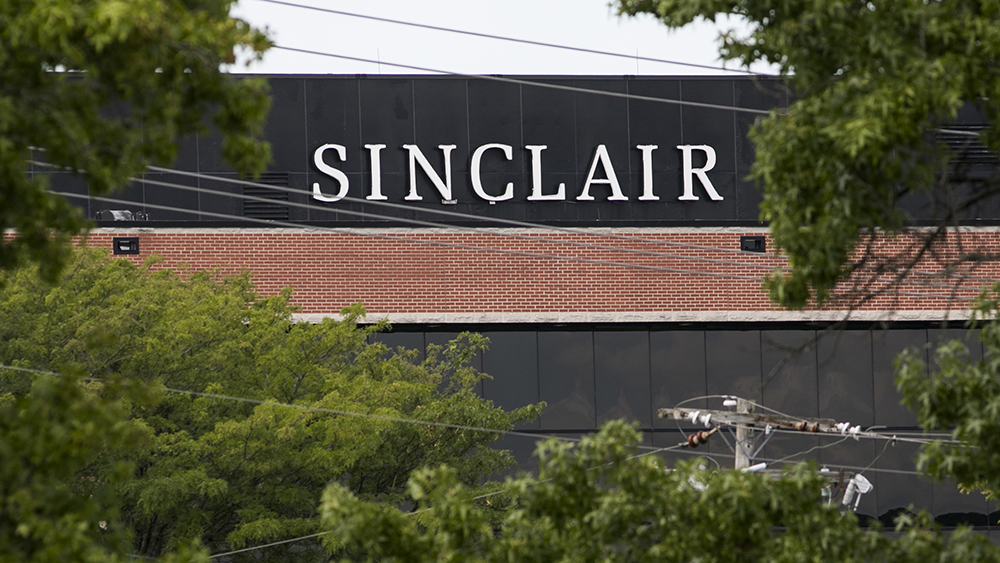Sinclair Fires Back at Tribune, Files Counterclaim Over Busted Merger
By Cynthia Littleton
LOS ANGELES (Variety.com) – Sinclair Broadcast Group fulfilled its obligations under the now-scuttled merger agreement with Tribune Media, argues in its response to the $1 billion lawsuit filed against its former suitor earlier this month.
Sinclair also filed a counterclaim against Tribune on Wednesday, blasting the company for its effort to build a case for litigation when it became clear that the FCC would not approve the $3.9 billion transaction. The deal was the target of fierce opposition as it would have made Sinclair a broadcast colossus of unprecedented size and reach.
Tribune sued Sinclair for $1 billion in Delaware Chancery Court on Aug. 9, just minutes after the merger agreement expired at midnight on Aug. 8. Sinclair’s filing revealed that it sought to reach a three- or six-month extension of the deal to address the FCC hurdles but Tribune refused. The deal was first reached in May 2017 and was subject to lengthy reviews at the Justice Department and FCC.
“We were extremely disappointed that the Tribune transaction was terminated,” said Sinclair president-CEO Chris Ripley of the counterclaim. “We are likewise disappointed that Tribune, through its meritless lawsuit, is seeking to capitalize on an unfavorable and unexpected reaction from the Federal Communications Commission to capture a windfall for Tribune.”
In July, the FCC surprised the industry by referring aspects of the transaction to an administrative law judge for review. That move is typically seen as the death knell for a merger. The FCC took that step after Sinclair proposed several moves that raised eyebrows for regulators and the industry, including plans to sell Tribune’s New York and Chicago stations at below-market prices to buyers with business ties to Sinclair. Those sales and other divestitures proposed by Sinclair included provisions that would have allowed Sinclair to repurchase the stations later if the regulatory climate allowed.
Sinclair’s 182-page response and counterclaim maintains that Sinclair never guaranteed Tribune in the merger agreement that the deal would receive regulatory approval. Tribune’s complaint slammed Sinclair for aggressive tactics with the Justice Department and FCC. Sinclair asserts that all of the planning and negotiation was done in concert with Tribune executives. The complaint cites numerous examples of correspondence in which Tribune executives praise Sinclair’s approach.
“Notwithstanding Tribune’s self-serving and after-the-fact attempts to distance itself from Sinclair and its own efforts to obtain approval of the Transaction, Tribune and Sinclair in fact were full partners in the DOJ approval process (albeit with a few disagreements along the way), which ultimately was on the verge of success, and full partners in the FCC approval process (with no meaningful disagreements along the way), which unfortunately was not successful,” Sinclair’s complaint states.
Tribune called Sinclair’s counterclaim “entirely meritless and simply an attempt to distract from its own significant legal exposure resulting from its persistent violations of Tribune’s contractual rights.”
Sinclair called the decision by FCC chief Ajit Pai to refer the deal to a hearing before a judge “stunning and wholly unexpected.” Pai had faced criticism for what some saw as his bias toward Sinclair in his efforts to revise FCC station ownership rules with measures that would benefit Sinclair. Earlier this week, an FCC internal investigation cleared Pai of showing any favoritism to Sinclair in his handling of claims involving the Baltimore-based company.
Sinclair’s complaint maintains it was close to reaching an agreement with the Justice Department in mid-July. It also suggests that the FCC’s move to refer the case to a judge was spurred by objections to the merger from outside entities. Pai said in announcing the decision that there were concerns Sinclair had been less than candid about its plans for divesting key stations. Tribune cites Pai’s statement as the nail in the coffin for the deal. Sinclair counters that Tribune was aware of all of its plans and that the merger agreement specifically cited Tribune’s WGN-TV Chicago as a station that might be sold off as part of the divestiture process but with the prospect of Sinclair buying it back down the road.
“The HDO (hearing designation order) was based solely on third party objections that cited publicly available information, undermining and contradicting any suggestion that Sinclair (or Tribune) had engaged in any potential lack of candor,” the complaint states. “The HDO came out of nowhere and, in Sinclair’s view, was unprecedented as to both substance and process. Sinclair nevertheless remained focused on exploring all potential options to address the FCC’s concerns and publicly announced that it remained fully committed to closing the Transaction.”
According to the complaint, by mid-July Tribune’s outside lawyers were blunt with Sinclair executives about the potential for a lawsuit against Sinclair.
“Tribune went so far as to send Sinclair a draft agreement seeking to condition Tribune’s obligation to use reasonable best efforts on entry into an agreement intended to preserve Tribune’s litigation position in the event the Transaction did not close,” the complaint states.
“Sinclair made clear that Tribune’s prioritization of its litigation strategy at the expense of its cooperation with Sinclair to try to close the Transaction was contrary to Tribune’s obligations under the Merger Agreement. Tribune doubled down, stating that such an agreement was necessary to ‘facilitate Tribune working with Sinclair to resolve the (legal hearing) without having to be concerned that Sinclair would use that cooperation against Tribune in any potential future litigation.’ Simply put, Tribune breached its obligation to exercise its ‘reasonable best efforts’ to resolve the (hearing) and work toward consummation of the Transaction.”

